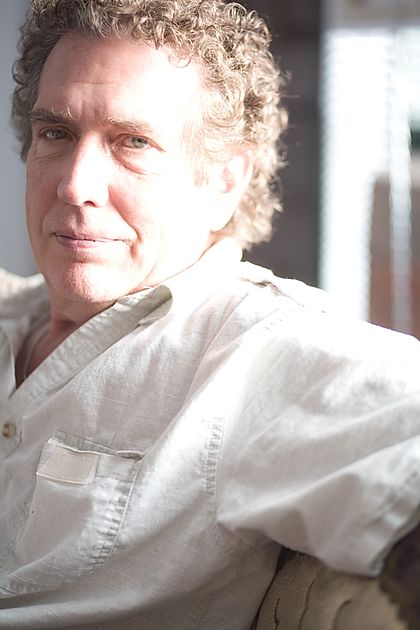Don't see what you're looking for?
Main Site
Berklee.eduCampuses and Schools

Pat Pattison
For media inquiries, please contact Media Relations
Pat Pattison is a professor at Berklee College of Music, where he teaches lyric writing and poetry.
In addition to his four books—Songwriting without Boundaries (Writer’s Digest Books), Writing Better Lyrics (Writer’s Digest Books), The Essential Guide to Lyric Form and Structure (Berklee Press), and The Essential Guide to Rhyming (Berklee Press)—Pattison has developed five online courses for Berklee Online: three on lyric writing, one on poetry, and one on creative writing, all available through online.berklee.edu. More than 1,300,000 students have enrolled in his coursera.org massive open online course Songwriting: Writing the Lyric since its first run in 2013. He has written over 50 articles for various blogs and magazines, including American Songwriter, and has chapters in both The Poetics of American Song Lyrics (University Press of Mississippi) and the Handbook on Creative Writing (Edinburgh University Press).
Pattison continues to present songwriting clinics across the U.S., Canada, Australia, New Zealand, and Europe. His students include multiple Grammy winner Gillian Welch, John Mayer, Tom Hambridge, Karmin, and American Authors, among many others.
- Author of the books Writing Better Lyrics, Managing Lyric Structure,and Rhyming Techniques and Strategies, and feature articles on lyric writing for Home and Studio Recording magazine and Los Angeles songwriters' music paper Performing Songwriter Magazine
- Recipient of more than 40 awards in American Song Festival lyric competitions
- Category winner in Music City Song Festival
- Regional and category winner in Original Song Festival
- B.A., University of Minnesota
- M.A., Kenyon School of Letters
"I like to think that we're providing everybody who goes through the major with something of value in terms of their listening skills, their writing skills, and their life skills. I mean, when you become a better writer, you become a better person, right? I'd like to believe that. At least you become a more focused and perceptive person."
"Our curriculum takes what I call the Nautilus approach to songwriting. You isolate the muscle and work on it. Everything about the major, at least at the beginning, is about isolation. The first step is to separate the lyric component from the music component, which isn't to say that we talk about melody without talking about lyric, or lyric without melody, because often you can't separate them."
"Of course, we try not to lose the focus that this is about creativity. We try to emphasize as strongly as possible that all these technical tools we teach are simply in the service of the ideas and emotions that you're trying to convey."
"The tools don't change from genre to genre. I don't care if you're writing country music, Broadway, heavy metal, alternative rock, or whatever; the tools don't change. Irving Berlin is doing the same thing as Sting; it's just how you express it in your own voice."
"Writing a phrase that begins after the downbeat or writing a phrase that begins right on the downbeat doesn't change from genre to genre. You get specific kinds of effects with any of those techniques. An A-B-A-A rhyme scheme is going to be an accelerating and deceptive rhyme scheme in heavy metal and in Broadway—or in Dylan."
"That being said, it's our job to show our students the tools they will find useful. And then to help them apply those tools to their own particular voice and to generate their voice."
"In Lyric Writing 1 we have a whole series of exercises that are specifically intended to help our students find their voices—object writing being one of them. It's a 10-minute writing exercise you do every morning. On the last Berklee student trip down to Nashville, when Gillian Welch, class of '92, was asked what the most important thing she got from Berklee was, she didn't even hesitate: 'Oh, object writing, no question.' It's a tool that stimulates creativity, stimulates your own voice, and helps you get to those places you need to get to in order to say what you uniquely have to say."
"Then we have students do a lot of writing, but we never have them write in any particular style, at least not in Lyric Writing 2, which is a critique class. There we just have them write whatever it is that they write. They can bring in a folk song, a country song, a hip-hop song, and we deal with whatever it is. We talk about the use of the tools, talk about how they might be better applied, and talk about what really works in it."
Get More Information
By requesting information from Berklee, you will receive emails about our educational programs, student resources, facilities, and more based on your selections.
Thank you for requesting information.
Check your inbox for an email from Berklee. You will start to receive program information, updates, and deadline reminders.
Find the program that's right for you with Berklee's Find Your Program tool.